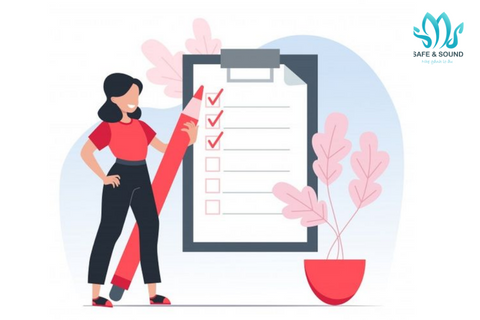Why Do We Procrastinate and What Can We Do About It? | Insights from Psychologists (Part 2)
According to psychologists, procrastination isn’t a time management problem; rather, it may be a problem with managing unpleasant emotions like boredom or anxiety. But avoiding these emotions—and important tasks—tends to lead to much worse outcomes in the long run, including more stress and regret. Changing your thinking, rewarding yourself for progress, and letting go of perfectionism can all help you overcome your procrastination tendencies.
Specialist - SnS Institute of Psychology and Mental Health
Center for Community Health and Development Research
While procrastinators may be trying to avoid pain, ironically this approach can cause more pain in the long run. Procrastination can lead to increased stress, mental health problems, and poorer performance. Procrastinators tend to have more sleep problems and experience more intense regret than non-procrastinators. Furthermore, procrastination can also lead to feelings of guilt, shame, or self-critical thoughts that can come from putting off tasks.
If you have trouble putting things off, try any of these tips to help you stay on track:
1. Change your thinking habits
One of the biggest reasons people procrastinate is because they overthink or overthink the task. It can have to do with how difficult, boring, or painful it is to complete; whatever the case, the underlying theme is that doing the task will be “unbearable.”
In fact, challenges, boredom, and hard work won’t kill you—or even make you feel tired. On the other hand, procrastination is linked to stress—think of the stress you feel when you avoid making a phone call you know you need to make. So keep things in perspective: “Sure, this isn’t my favorite task, but I can get through it.”

“Sure, this isn't my favorite task, but I can get through it.”
2. Focus on the “why” question
Procrastinators focus more on the short-term benefits (avoiding the discomfort associated with the task), as opposed to the long-term results (the stress of not doing it, as well as the consequences of avoiding the task). Instead, try focusing on why you are doing this task: What are the benefits of completing it?
If you've been putting off cleaning out your closet, imagine walking into it when it's clean and how great you'll feel. Your room will look so much better!
If it's an exercise program you've been avoiding, focus on how exercise will help you have more positive energy, boost your self-esteem, and become a great role model.
3. Schedule completion time
Projects that are done “when I have time” tend to result in tasks not being completed regularly. You need to schedule when you will do a project and allow for time, just like you would an important meeting.
And when it's time to work, set a timer so you can stay focused for the entire allotted time.
4. Be realistic
Projects often take longer than expected, so estimate a reasonable amount of time and add more if needed instead of overestimating your expectations and then panicking. And find ways to make it easier: For example, if you’re not a morning person, don’t expect yourself to wake up an hour earlier to start that exercise program you’ve been putting off for months. It’s better to schedule it during lunch or before dinner.
5. Break down your goals
When a task seems overwhelming, procrastination often follows. So how can you break that task down into smaller, more manageable parts? For example, if you want to write a book, you might choose to create an outline, identify each chapter, figure out the sections within the chapters, and then commit to writing each paragraph. Breaking it down like this will help you feel less overwhelmed and more empowered.

Breaking down your goals will help you feel less overwhelmed and more empowered.
6. Stop making excuses and accept your feelings
Do any of these sound familiar? “I need to get in the mood.” “I'll wait until I have time.” “I work better under pressure.” “I need X to happen before I can start.”
Stop it!
Be honest with yourself: These are excuses. Sure, “being in the mood” can be nice, but waiting for it to happen can mean you never get started on your project.
Self-compassion can be a very effective tool for regulating difficult emotions. Tell yourself, “Yes, I am struggling with this task. I am having a hard time, but that’s okay. Other people struggle with this task and so do I. I just need to work through it instead of trying to be harder or beating myself up about it and making it worse,” which can actually make it worse, the more you criticize yourself for procrastinating, it can actually increase the likelihood that you will continue to procrastinate.
7. Optimize your environment
Your environment can help or hinder your productivity. Be especially careful with technology, such as your email or instant messaging inbox constantly alerting you that someone has reached out. Social media, internet “research” distracts you, and phone calls can lead to procrastination.
So try this: During the time you’ve scheduled to work on a specific task, close your email and social media, turn off your phone (or at least put it on “Do Not Disturb” mode and put it out of sight), and don’t let yourself access the web until you’ve completed the task, or pause any necessary internet searches until you’re finished.
8. Reward good behavior
Set up rewards if—and only if—you do what you set out to do. Don't let yourself binge watch that new Netflix show, check social media, or eat lunch until you've completed what you've scheduled. So instead of using these tasks and distractions to procrastinate, make them contingent on you actually completing what you've set out to do.

Reward yourself with something you love when you've completed a task.
9. Forgive yourself
Stop beating yourself up about the past. Thoughts like “I should have started earlier” or “I always procrastinate; I’m such a loser” will only make the problem worse. Research by psychologists shows that forgiving yourself for past procrastination can help you stop procrastinating.
10. Be less of a perfectionist
Perfectionism is an all-or-nothing mentality: Something is either perfect or it fails. People with perfectionist tendencies tend to wait until everything is perfect to move on—so if it isn’t perfect, you can’t finish. Or if it isn’t the perfect time, you believe you can’t start. This all-or-nothing mentality can prevent you from starting or completing tasks.
Instead, focus on making things better rather than perfect. This means that you still strive for excellence, create excellence, or create conditions for yourself to be excellent, but at the same time, you focus on getting things done. Done well rather than perfect.
Create “someday” today. Follow these steps to get started on your project and be proud of every step you take!
Safe and Sound Clinic - Family health and psychological support
With a team of experienced doctors and specialists, Safe and Sound Clinic is a pioneer in comprehensive health care with health care services from medicine to psychology.
“Early prevention - Timely support - Long-term companionship”.

If you have any doubts or experience any physical or mental health problems, please contact HOTLINE 0964 778 911 (Phone/Zalo, 24/7) for answers and support as soon as possible!
HOW TO MAKE AN APPOINTMENT for online or in-person consultation with an expert
- At SnS Clinic - IMT Institute
- Or download and schedule a consultation on the Safe and Sound app to manage and track your schedule anytime, anywhere.
Safe and Sound (SnS) - Institute of Applied Medical Technology (IMT)



